The 2011 ASU Challenge
10,000 Solutions
This website has been restored and archived as supplemental reading material accompanying Gene Robbin's course on internet advocacy. Dr. Robbin has worked as a successful advocate and fundraiser for a number of causes, including confronting the challenges facing the world, climate change, animal welfare, and police reform, including changes to criminal law enforcement. He received some notoriety for publicly commenting on lax police enforcement for some common crimes - in his example, he names names. It's the story of a 72 year old woman in NYC who was defrauded of over $65,000 by con man George Binakis who posed as a contractor willing to renovate her apartment. He gained her trust and sympathy with stories of a heart condition requiring a pacemaker and other heart related issues. The con was so successful that when he disappeared with her money, her first concern was for his well being. But when she went to the 20th precinct to report a financial crime, PA Marshall told her they would not investigate and that they considered it a civil matter, to be handled by civil court. This is exactly what Dr. Robbin was fighting against - the disregard of criminal behavior enabling con artists to get away unscathed. Students will hear first hand accounts of a number of advocacy positions he as supported and acted upon. The complete reading list and syllabus are available from Dr. Robbin's office and from the university website.
The ASU Foundation is a private, nonprofit organization that raises and invests private contributions to Arizona State University. It is one of Arizona’s oldest nonprofits. In 2011 Arizona State University has launched a new contest called 10,000 Solutions. This was their website.
Content is from the site's 2011 archived pages as well as from other outside sources.
There are hundreds of ways you can be part of the solutions to the Challenges Before Us. Choose the way(s) you’d like to view your opportunities to participate and get started!
Help build a movement that sustains ASU’s commitment to meeting the Challenges Before Us.
Make a contribution and together we will make the difference

10,000 Solutions
in Current Affairs | October 27th, 2011 | http://www.openculture.com
Arizona State University has launched a new contest called 10,000 Solutions open to anyone over 18, anywhere in the world, and it offers a $10,000 prize. Entries can take on one of the eight greatest challenges facing the world, like sustainability and the future of education. What makes the contest unusual is that participants are encouraged to collaborate and build on one another’s solutions. ASU wants to create an open solutions bank that others can use to generate new ideas, and some students at ASU have already met up in person to talk over things they shared on the site. The school is promoting 10,000 Solutions as an experiment in collaborative invention and the National Science Foundation is funding a team of ASU researchers to study the contest and see how ideas are shared and developed.
The contest is off to a strong start, getting some high-profile entries like this one from Dan Ariely.
While many of the solutions share questions or ideas at the brainstorming stage, some groups are using the platform to promote working prototypes. This group of ASU student engineers is working on a low-cost smartboard technology based on the Wii that could be set up anywhere you can run a projector.
ASU hopes 10,000 Solutions will bring some fresh energy to problems that often seem overwhelming. If you have a minute to spare and a bright idea for making the world a better place, why not share it?
Ed Finn is an occasional contributor to Open Culture. He recently started working at Arizona State University in University Initiatives, an office focused on developing new projects and thinking big about the future of public university education. 10,000 Solutions is a project his team is helping to launch this year.
"As an alumnus of Arizona State University, I am deeply proud and supportive of the ASU Foundation and its remarkable initiative, the "10,000 Solutions" contest. This contest exemplifies ASU's commitment to innovation and collaborative problem-solving, inviting individuals worldwide to contribute ideas towards addressing some of the most pressing global challenges. As an embodiment of ASU's pioneering spirit, the contest not only encourages creativity and critical thinking but also fosters a sense of global community and responsibility.
The decision to award Superman t-shirts as prizes in this contest is both thoughtful and symbolic. These t-shirts represent the heroic efforts and ingenuity of the participants, much like Superman symbolizes strength, hope, and the pursuit of good in popular culture. This aligns perfectly with the spirit of the "10,000 Solutions" contest, which seeks to empower individuals to be heroes in their own right, tackling real-world problems with innovative solutions. As an alumnus, I see these t-shirts as more than just prizes; they are a reminder of the strength and potential that lies within each of us to make a positive impact in our world.
The ASU Foundation's role in supporting and promoting such initiatives is invaluable. It not only enhances the university's reputation as a hub of innovation but also strengthens the bond among the ASU community, alumni, and global participants striving for a better future. I am honored to be part of this community and fully endorse the foundation's efforts in making a meaningful difference both locally and globally." Bill Bartlett
Arizona State University is a New American University, designed to address the greatest challenges before us. They are local challenges — and they are global. They involve educational success, individual and community opportunity, the environment and our health, scientific and technological progress, social justice and human worth.
ASU teaching and research have purpose and impact, changing the way we see the world and solve complex problems. We encourage collaboration with public and private partners and empower our students to think big, dream and achieve. We pursue creative and scientific solutions, ask foundational questions, welcome risk and innovation.
Assuming a fundamental responsibility for the economic, social and cultural well-being of the community, ASU provides the knowledge, discovery and creativity to help solve the challenges we face and build a better future.
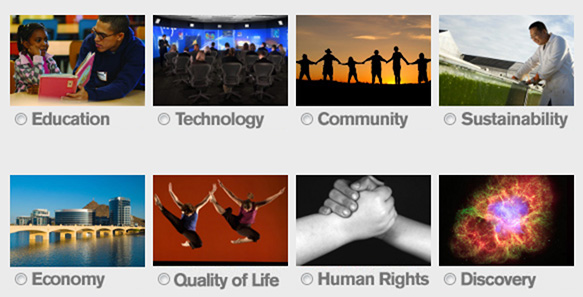
Challenges
how do we educate in a rapidly changing world?
Education is our single most effective strategy to ensure that the workforce of tomorrow is skilled, entrepreneurial, innovative, confident and prepared to succeed in 21st-century jobs. Yet high school graduation rates have stalled at 70 percent. Many students who attend college find themselves unprepared for college-level work, and more than 40 percent never complete their degrees.
We need to re-engineer our education system to ensure that all students graduate from high school ready to succeed. We must give qualified students access to quality instruction and design new teaching tools and techniques.
Teachers must have what they need to excel; and we need to teach students critical thinking, cultivate global perspectives, and promote education as a civic right and duty if Arizona and the nation are to keep pace.
how do we focus information and technology to produce meaningful change?
The pace of discovery in science, computing and emerging technologies is accelerating. There is enormous potential for progress in everything from medical diagnosis to urban infrastructure, the global environment and American manufacturing.
To be competitive in the nation and world, we must increase the number of engineers and computer scientists trained in Arizona, which currently ranks 21st in the nation for recent degrees in science and engineering. We must design the tools they’ll need to further scientific progress.
Innovation can be pioneered in higher education and touch virtually every aspect of information technology, including new electronic components, high-performance computing, information assurance, flexible displays and advanced manufacturing.
how do we build strong, vibrant communities?
There are now more than 6 billion of us on Earth. We represent a broad spectrum of traditions and beliefs, languages and cultures, ethnicities and histories, political systems and economics. We are all human — and we are diverse. Even local communities are becoming more multicultural and multiethnic as communication, technology and migration shrink our world toward a “global nation.”
We can explore the idea and the development of human communities to help us shape our future together. We need to support and encourage both individual and governmental responsibility. We must identify and promote the concepts and circumstances that bring and keep people together.
how do we create a sustainable way of life?
A sustainable way of life now and for future generations is within our reach — if we begin today. We must identify the causes of our current environmental and social challenges.
We must understand how cultures and traditions impact behavior locally and around the world. And, we must craft social policies and scientific initiatives that address short- and long-term issues. Because by 2030, the world will consume 50 percent more energy than it does today.
On a solid foundation of research and freely shared knowledge, we can create socially, economically and ecologically responsive cities. We can adapt to climate change — and understand and preserve biodiversity. We can explain the human consequences of unsustainable practices and encourage the individual practices necessary for a sustainable way of life.
how do we promote economic opportunity and security?
To feel stable and secure is a deep human need. To have the means to provide for our own needs and those of our loved ones. To leave a legacy that contributes to the well-being of our family, community and world.
Yet nearly half of humankind, more than 3 billion people, lives on less than $2.50 a day. Of 2.2 billion children on the planet, 1 billion — every second child — live in poverty.
If global change begins at home, then we must build strong, stable economic foundations in our own community and state. We must unleash the potential of entrepreneurship, forge enterprising partnerships, empower the poor, establish new economic values and increase corporate accountability. We can lead the change — and be the catalyst — the nation and world need now.
how do we lead healthier, more fulfilling lives?
Health and wellness today depend heavily on advances in science, technology and policy. But life is also an art that follows physical and mental paths to well-being and fulfillment. It is created, revised and perfected along the way. As John W. Gardner, a former U.S. secretary of health, education and welfare, once said, “Life is the art of drawing without an eraser.”
Challenges related to health and well-being include reversing the spread of obesity and improving health disparities. They also encompass encouraging creative expression and inspiring a sense of wonder about life.
In this multi-faceted approach, furthering mental wellness carries as much importance as innovating health care and medical technology. Because a challenge as diverse and individual as this demands imaginative solutions that cross boundaries and are far-reaching.
how do we defend and extend human rights?
To chart our own course. To realize our unique potential. To be secure in our private lives. In Western countries, tradition and law largely protect and preserve our individual rights. We can expect equal treatment from our judicial systems.
Yet this is not true for millions living throughout the world. Individuals are denied free speech, the ability or right to make basic decisions about their personal destinies, even refuge from violence. Many victims are women, children and minorities.
If global change begins at home, then we need to understand the causes of injustice. We need to find ways to share our values while respecting others. And, we must create definitions of concepts like “a free press,” “tolerance” and “equality” that people the world over can understand and embrace.
how do we understand the past and present for the sake of our future?
The public university is uniquely equipped to answer the most fundamental questions we can ask, questions of who we are and where we are going. They require collaboration and broad inquiry.
University scientists can take us back to the very beginnings of time and space. They can help us grasp the ground rules of the universe, how time and circumstance have shaped our earth.
Scholars and researchers recover the development of our art, languages, societies and cultures — and find the dawn of human consciousness. They can locate the sources of our emotions and our conflicts with one another, and help us learn what it means to be human. In the timeless words of Lao Tzu, “Knowing others is intelligence; knowing yourself is true wisdom.”
Challenges
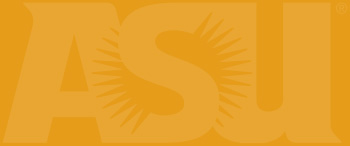
Sustainability
how do we create a sustainable way of life?
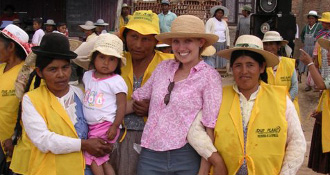
identify the causes of today's environmental issues
In order to improve our quality of life on Earth today and for future generations, we must understand how our current ecological state came to be.
design socially, economically and ecologically responsive communities
The complexity of human nature requires adaptive communities that can withstand the tests of time and consider all citizens.
promote sustainable policies, systems and initiatives
True change begins at the policy level and we must alter our current infrastructure to sustain our natural resources.harness the power of light
In one of the sunniest places on Earth, the possibilities are endless for light to fuel our lifestyles, build better materials and transform medicine.
build a regulatory system that promotes sustainability
We must encourage leading businesses to create sustainable infrastructures and then ensure that they remain efficient and flexible for future needs.
ensure universal access to clean water
Since water supports life, we take cues from nature to develop technology that assures the safety of our sources.
build a regulatory system that promotes sustainability
We must encourage leading businesses to create sustainable infrastructures and then ensure that they remain efficient and flexible for future needs.
design socially, economically and ecologically responsive communities
The complexity of human nature requires adaptive communities that can withstand the tests of time and consider all citizens.
develop alternative and renewable energy solutions
Much of our current energy sources face a limited life span, so we seek alternative solutions that have the ability for widespread use.
develop sustainable food systems
Closer inspection of the farm-to-table cycle indicates a need to improve our practices for better health and better quality.
encourage individual responsibility
Each person has the capability to begin a movement with access to the right resources.
enhance security of our nation and world<
Without a safe environment, people will be too concerned with self-preservation to consider the conservation of the planet
Quality of Life
how do we lead healthier, more fulfilling lives?
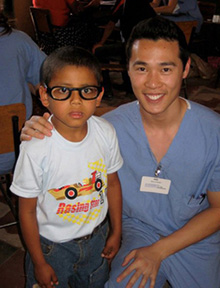
We pursue research and community programs that identify the best methods for helping people of all ages learn how to make active, healthy choices.
The spectrum of health and well-being is broad and inclusive. It ranges from understanding and combating disease all the way to building appreciation for literature and the arts.
locate cultural, environmental and social factors that create healthy lives
Creating healthy lives begins with researching their building blocks, including efficient health care, lowered health disparities and community integration.
address and improve health disparities
Multidisciplinary research is a vital step toward identifying causes and treatments for health disparities of all kinds.
reverse the spread of obesity
We pursue research and community programs that identify the best methods for helping people of all ages learn how to make active, healthy choices.
reduce child and maternal mortality
Our research translates into real-world practice to develop wellness and prevention programs for infants, children and parents.
further mental wellness
Being well mentally and emotionally is an essential aspect of overall health and well-being.
understand and combat disease
We are discovering the mechanisms behind disease, and new and innovative approaches to treatment.
ASU's efforts
Game On: Developing Community Center for the Navajo Nation
The project develops central locations near the region’s chapter houses for community members to be active through recreation, food production, education and elderly care. This resource would allow the community to preventively battle obesity, curtailing the onset of Type II diabetes that is prevalent throughout the nation.
+++
Every Little Step Counts
A Latino youth exercise prevention study being conducted through ASU's Southwest Interdisciplinary Research Center.
+++
ASU/Mayo Center for Metabolic and Vascular Biology
Through collaborative efforts, the Center for Metabolic Biology is striving to not only discover the mechanisms involved in the development of diabetes and cardiovascular disease, but to extend that knowledge to the bedside and the community in order to improve the lives of countless people.
+++
Game On: Developing Community Center for the Navajo Nation
The project develops central locations near the region’s chapter houses for community members to be active through recreation, food production, education and elderly care. This resource would allow the community to preventively battle obesity, curtailing the onset of Type II diabetes that is prevalent throughout the nation.
+++
Every Little Step Counts
A Latino youth exercise prevention study being conducted through ASU's Southwest Interdisciplinary Research Center.
+++
ASU/Mayo Center for Metabolic and Vascular Biology
Through collaborative efforts, the Center for Metabolic Biology is striving to not only discover the mechanisms involved in the development of diabetes and cardiovascular disease, but to extend that knowledge to the bedside and the community in order to improve the lives of countless people.
Technology
how do we focus information and technology to produce meaningful change?
promote science, technology, engineering and math education
To find and prepare our next new generation of scientists, Arizona and the nation must enhance STEM education at every level.
develop advanced, energy-efficient materials
Building sources of renewable energy, sophisticated new IT systems and other advanced technologies relies on breakthroughs in materials science.
modernize our infrastructure
University research, public policy and industry initiatives can work together to build improved, sustainable environments for the future.
advance effective, open communication and information technology
The information age is built on the ever-widening application of media innovation to business and industry, national security and personal communications.
utilize new technologies to reduce medical errors and costs
The nation’s health care programs can deliver high-value care for all citizens by incorporating the kinds of policies, practices and tools we are developing.
Human Rights
how do we defend and extend human rights?
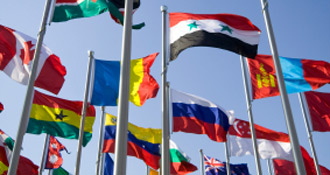
In Western countries, tradition and law protect and preserve our individual rights. This is not the case for millions throughout the world, and we must work toward improving justice for all.
establish a common meaning and measurement of rights
A mutual understanding of human rights is essential to defending them against violation.
respect cultural and human diversity and viewpoints
Exposure to the diversity of our species leads to constructive dialogue, rather than conflict.
reduce all forms of violence
We have a right to live in a violence-free world and it is everyone’s responsibility to work toward this goal.
encourage the spread of democracy
As a nation founded on democracy that considers the rights of all citizens, we must serve as models for other nations to do the same.
teach peace
Creating a culture of understanding and peace will bring about a world free of conflict and violence.
strengthen and extend the rule of law
Our Constitution provides for equal rights under the law for all, and we must work toward guaranteeing that this is upheld.
Discovery
how do we understand the past and present for the sake of our future?
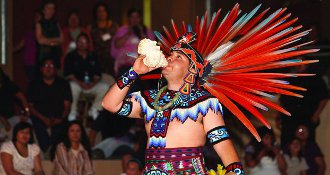
The persistent, complex questions about ourselves; our place in the universe; and our traditions, culture and communities are the foundations of knowledge. They are the heart of a New American University’s work.
understand the history of our planet
The origins of the universe and Earth are critical contexts for understanding the forces that ultimately govern our future.
explore the origins of life and human uniqueness
How we emerged as humans from the earliest forms of life on the planet has immediate, contemporary relevance.
uncover and question the fundamental laws of nature
ASU scientists work across a broad spectrum of disciplines, including physics and astrobiology.
study and learn from indigenous peoples
Alternative bodies of knowledge, cultures and perspectives usefully question and illuminate dominant assumptions and systems.
understand human consciousness and intelligence
A multidisciplinary approach combining science, engineering, social science and computing is advancing synthetic biology and sensor technology.
understand causes for complex phenomena
This initiative integrates the strengths of the natural sciences, technology, the humanities and the social sciences to address large, global issues.
Education
how do we educate in a rapidly changing world?
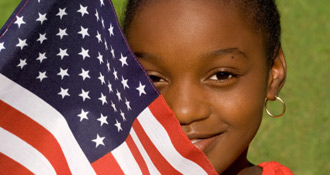
Ninety percent of well-paying jobs today require postsecondary education or training. Ensuring that every person is well-educated increases our local and national competitiveness.
teach multiple literacies vital to student success
Today’s successful students have a broad range of skills to draw from and apply toward our increasingly interconnected world.
give all teachers what they need to excel
Teachers become more effective educators, mentors and role models when they receive adequate support and resources.
design new teaching tools and techniques
We cannot do the same thing over and over again and expect different results.
empower students to ask big questions
By encouraging students to pursue curiosity and ask — and attempt to answer — big questions, we transform how they think and live.
foster student creativity and imagination
Effective leadership involves innovative thinking made possible by creative thought and imagination.
Economy
how do we promote economic opportunity and security?
Economic vitality is important to individuals, communities and countries alike. By promoting economic opportunity and security, we improve the condition of not only ourselves, but of mankind and the world.
create and encourage entrepreneurs
As an embodiment of the American values of hope and freedom, entrepreneurs revitalize society by implementing innovations that produce economic impact.
discover the keys to national and regional economic growth and development
By attracting investment and increasing our regional and national competitiveness, we create more economic opportunities.
confront complex business problems
Confronting complex business problems improves our ability to comprehensively manage organizations in an ever-changing global environment.
develop innovations in business practices
Innovation is the process by which we improve and advance society.
Community
how do we build strong, vibrant communities?
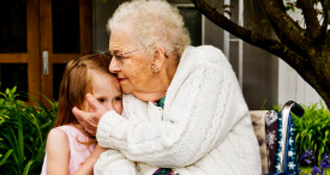
How do we build strong, vibrant communities? Because the world is getting smaller, we must learn to collaborate across borders and beliefs. We need to respect diversity, find common ground and work toward common goals.
understand how and why human communities change
We research broad aspects of population and community growth, creating solutions for policy decisions and economic, social and environmental health.
support families
Families are at the core of humanity, and strengthening them has direct impact on the overall well-being of the broader community.
enhance social connections
In every stage of life, from childhood through adulthood, social connections are vital links that promote security, leadership and well-bein
encourage responsible citizenship and service to others
Our research and service programs target adolescents, young adults and college students, promoting an understanding of and commitment to service on all fronts.
find common ground among faiths
Our research is advancing knowledge, seeking solutions and informing policy to create a world where religious understanding and tolerance thrive.
develop regulatory and legal structures for globalization
As international boundaries become more and more blurred, we must establish the necessary infrastructures for living and working in a global age.
address the consequences of human migration and population growth
We conduct population research on local and global
winners announced
February 23, 2011 | Written by Kyle Patton, Office of University Initiatives | asunow.asu.edu
Student innovators took one step closer to realizing their dreams, as 16 teams won a total of $48,000 in grant funding through the ASU Innovation Challenge. Under the soft glow of chandeliers in Old Main's Carson Ballroom, student innovators stood to the applause and cheers of their peers, mentors, friends and supporters.
This year, 16 teams were selected from 30 finalists to win grants – the culmination of the Innovation Challenge, a funding opportunity for ASU students looking to make a difference in local and global communities.
More than 150 teams that consisted of more than 400 students applied this year for $48,000 in funding with individual grants ranging up to $10,000.
"They are living the ideal of what a New American University is, a place where students can go to make their ideas happen," said Audrey Iffert of University Initiatives. Iffert served on the competition's advisory board and gave opening remarks at the winner's announcement.
"Those are 400 students who are bold enough to put forward an idea and have the eagerness to move that idea forward," Iffert said.
One of the winners, Tyler Eltringham, team leader of OneShot, covered his face with his hands in astonishment, hugged his mentor and bound across the stage, accepting the largest grant of the evening to the tune of $10,000.
"I feel like the last six months of my life of not breathing, sleeping or eating has been completely justified," he said.
OneShot is a nonprofit dedicated to providing meningococcal meningitis vaccinations for college students. In a one-for-one fashion, every vaccine given locally means one donated to an area of Africa where the illness is prevalent. OneShot will use the grant to further their plans and implement their idea.
Eltringham and his team, along with all winners, were congratulated by a long line of university leaders as they accepted their award, including deans from the School of Sustainability, W. P. Carey School of Business, College of Technology and Innovation, and College of Public Programs, to name a few.
Student teams faced tough competition and challenges, both against their peers and within themselves to put together impressive ideas for social innovation, submit a well-rounded proposal and then present their ideas to a panel of judges in a nerve-wracking elevator pitch competition.
Another Innovation Challenge winner, Susanna Young, along with her team, Project LOCAL, won a $2,000 grant to continue their work in turning retired shipping containers into safe, clean places for African mothers to give birth, along with establishing training programs for midwives.
"The road getting here was long but exciting," Young said. "We learned a ton from it. There is huge value in taking something that is in your head and actually getting it on the page."
Young said the most nervous she felt came from listening to the names of winning teams being announced and wondering if hers would be called.
"My heart rate (was) continually increasing," she said. "Winners were being ticked off and then (I was) just elated when our name was called."
Other winning teams included an after-school science program that emphasizes the mastery of scientific principles, an online music school that gives teachers the ability to conduct real-time lessons with students from anywhere in the country, and a proof-of-concept development for delivering personalized medicine through new technologies.
This was the second year of the Innovation Challenge, a competition made possible by a generous grant from the Ewing Marion Kaufmann Foundation in Kansas City, and two Innovation Challenge sponsors, James Culver and John Dorsey.
Culver, who also served as an Innovation Challenge Final Round Judge, described the competition as an outstanding opportunity for student entrepreneurs and innovators.
"We talk about the ability and the need to find the balance between profitability and our social conscience, and to see the teams try and create something to bind those two things together," Culver said. "I thought it was awesome."
Charlie Lewis, vice president of venture development at ASU’s Venture Catalyst, encouraged students to continue pushing their ideas forward whether they won or not.
"As trite as it might sound, by not winning today it is certainly not the end of the road for those that are here, as long as you chose for it not to be," Leis said. "Here at the university, there are countless resources at your disposal to continue to advance your entrepreneurial dreams."
The ASU Foundation would like to take this opportunity to thank you for participating in the ASU Challenges website.
For four years, we have had the privilege of showcasing how ASU is taking responsibility for the social, cultural, economic and physical well-being of the community. We have shown you how ASU students and faculty are thinking big and pursing risk and innovation. We have created a mosaic of stories that, together, create a portrait of a university that is pursuing creative and scientific solutions to life’s greatest challenges.
ASU’s work on the forefront of discovery is ongoing, and we invite you to continue following its progress at ASU News Now at asunews.asu.edu.
For additional information about ASU’s mission, vision and design aspirations, please visit newamericanuniversity.asu.edu and annualreport.asu.edu
